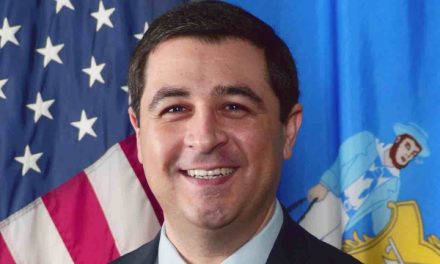
Potential neural treatments for autism patients
Medical College of Wisconsin
8701 Watertown Plank Road
Milwaukee, WI 53226
Fax (414) 955-6166
For more information, contact:
Office of Public Affairs
Maureen Mack (mmack@mcw.edu)
Director of Media Relations
Cellular: 414-750-5266
Office: 414-955-4700
A research scientist from Marquette University has received a three-year Mentored Career Development Award from the Clinical & Translational Science Institute of Southeast Wisconsin (CTSI) to study how treatments for autism spectrum disorder affect the brain. Amy Vaughan Van Hecke, Ph.D., associate professor of psychology at Marquette
University and the director of Marquette Autism Clinic, is the recipient of one of four grants awarded this year by the CTSI. The grant provides up to $140,000 per year in salary and benefits, as well as $25,000 to support her research. In addition to the financial support, the grant also provides mentored training opportunities for junior faculty working in clinical and translational research who want to become dedicated, independently funded researchers. Dr. Van Hecke’s mentors over the next three years include Edgar DeYoe, Ph.D., professor of cell biology, neurobiology, and anatomy at the Medical College of Wisconsin (MCW), and director of the lab for neuroscience research at MCW; and Robert Scheidt, Ph.D., professor of biomedical engineering at Marquette University and director of the Neuromotor Control Laboratory at Marquette.
Autism is a group of developmental disabilities that can cause social, communication, and behavioral challenges. Neuroplasticity refers to changes in neural pathways and synapses (gaps) that are caused by changes in behavior, environment, neural processes, and bodily injuries. The goal of this project is to find evidence of neuroplasticity in adolescents with autism in response to clinical autism treatments.
Drs. Van Hecke, DeYoe, and Scheidt will advance Dr. Van Hecke’s current research using brain-imaging techniques. Adolescent participants in the Marquette PEERS (Program for the Education and Enrichment of Relational Skills: Laugeson et al., 2009) intervention will be compared to a waiting-list group. PEERS focuses on helping adolescents develop one, quality, reciprocal friendship. The study aims to examine whether participation in the program, and development of a friendship, changes the brain’s structure and function.
The goal of the CTSI is to create synergy through collaboration, and studies are specifically designed to lead to major future research support. The projects explore findings that have the potential to be translated into clinical practice and community health, and are led by investigators at the CTSI’s eight partnering institutions: the Medical College of Wisconsin, Marquette University, Milwaukee School of Engineering, UW-Milwaukee, Froedtert Hospital, Children’s Hospital of Wisconsin, the Clement Zablocki VA Medical Center, and BloodCenter of Wisconsin.
CTSI is one of only 62 medical research institutions funded by the National Institutes of Health (NIH). Working together, the CTSI institutions are committed to improve human health by streamlining science, transforming training environments and improving the conduct, quality and dissemination of clinical and translational research. The CTSI program is led by the National Center for Advancing Translational Sciences (NCATS), part of the NIH. Support for the Mentored Career Development Award Program is provided through the CTSI.





